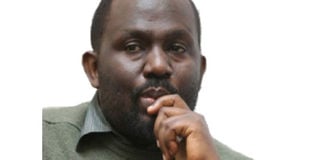Something is dead in Uganda, and lower deck people are very angry

Author, Charles Onyango Obbo.
What you need to know:
- Mr Charles Onyango Obbo says: Museveni was, and likely still is, able to find ubuntu moments.
One time, several years ago, in my endless run-ins with the NRM rulers over some “offending” story The Monitor had published, I got a call from the Criminal Investigation Department (CID) to go and record a statement. I had dealt with the same officer several times.
He was a reflective lawyer, and cosmopolitan; one of those enlightened CID corps, who eventually went on to greater things in the world. What happened next is impossible to imagine in today’s Uganda. I told him I had some crazy deadlines, and couldn’t make it, maybe tomorrow.
Gently, he told me that would be a problem, they needed the statement on the day.
“What about I write it here and send it to you by email?” I asked.
“Sure, that would be sufficient for now,” he said, to my pleasant surprise. So, I did.
Of course, even at that time, that was increasingly happening on the margins, and journalists – even when we were at our most disagreeable – were still largely viewed as a necessary evil, and oppressed gently. And, if truth be told, some of us had backdoor channels to the now largely extinct and extinguished progressive contingent in the regime, through which we often negotiated civilised resolutions to disagreements.
It was a slightly different for politicians, but still some like UPC “iron lady” Cecilia Ogwal, were not beaten like snakes the way subsequently happened to FDC’s Dr Kizza Besigye, Robert Kyagulanyi, aka Bobi Wine, MPs Fred Zaake and Betty Nambooze; or tormented and physically humiliated as they did with activists like Stella Nyanzi and Annette Nana Namata.
What turned the tide, especially outside northern Uganda where things were quite extreme in the war, was the Besigye challenge in 2001. From that point, President Yoweri Museveni and the NRM circled the wagons and plunged into a bunker mentality, which just gets worse with every election.
The violent treatment of Bobi Wine after his nomination, and FDC’s Patrick Oboi Amuriat before, were a step up from the past. And a few days ago, when protests broke out after Bobi Wine was arrested allegedly for violating Covid-19 rules against large crowds, the murderous fury with which protesters were met, was shocking.
Eighteen years ago, when Gen Katumba Wamala was Inspector General of Police, it was not inconceivable that the area police commander would have been asked to go and whisper quietly in Bobi Wine’s ear, and the issue would have been de-escalated without handcuffs, bullets, and blood on the streets.
It was a time when Gen Katumba could send a letter to The Monitor asking for a contribution to buy police patrol cars, and amid all the other contradictions we were having with the State, Wafula Oguttu, who was MD, would ask “how much” and have a cheque written.
However, it is not only the State that has gone native. With every other round of killings and arrests, public attitudes, especially among the youth, have hardened. The views of those who dislike the Museveni government have become more extreme.
And the ethnic profiling of “westerners”, and genocidal hostility to “regime supporters” has also gone to scary places.
It was evident in the last few days following the protests in the wake of Bobi Wine’s arrests. There was a stream of WhatsApp advice to people not to drive fancy cars into town lest they be “mistaken for being one of Museveni’s people” or “considered a regime person.” A friend sent me a message, saying a boda boda man who was carrying her relative from Naguru to Luzira, pointed at a house in Mbuya and said, “that will be my house when the [Museveni] regime falls.”
That sentiment actually targets something beyond leading regime beneficiaries; it’s an anger bubbling among the “lowerdeck” people, against the “upperdeck” folks in general. And they will probably go for those fancy houses, irrespective of the political party card the owner is carrying, when the cookie crumbles – and the cookie always crumbles, the only question is when.
The primitive violence and savagery against politicians, who speak to lower deck people’s issues like Bobi Wine, only ensures that it will end only one way. It doesn’t have to.
There was a time when Museveni had his moments. He’d call Wafula early, sometimes just after 7am. But it wasn’t to do war. Sometimes it was to correct a historical fact. One time he had a long chat about an error in the melting point of some element in an obscure article on the science page. He was right.
A certain humanity is possible. Museveni was, and likely still is, able to find ubuntu moments. He doesn’t have to always walk around with a hammer in one hand, an AK-47 in the other, and a butcher’s knife in his pocket.
Mr Onyango-Obbo is a journalist, writer and curator of the “Wall of Great Africans”. Twitter@cobbo3





